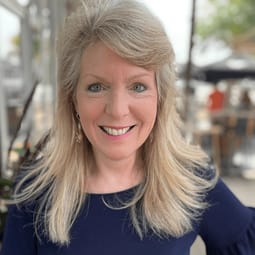
Susan Richardson
Arthur Sease Williams Professor of Chemistry, Department of Chemistry & Biochemistry, University of South Carolina, USA
False

Arthur Sease Williams Professor of Chemistry, Department of Chemistry & Biochemistry, University of South Carolina, USA
Main research aims? My main research revolves around making drinking water safer. I think we have good water, but I think we can do better. I focus mostly on understanding disinfection by-products (DBPs) that are formed when we disinfect our water, working with toxicologists to determine which are harmful, and working with engineers to develop new treatments that can be used to minimize their formation and make water safer. As an analytical chemist, I have been using GC and LC with high resolution mass spectrometry to comprehensively identify DBPs in drinking water – ones that are not regulated and nobody knows about. We have identified about half of the ~800 currently known. We also have developed sensitive GC-MS methods to quantify 72 of the most toxicologically important DBPs.
How would you spend a $1 billion research grant? I would do a multi-city, giant human epidemiologic study of drinking water DBPs, and instead of focusing on the regulated ones (as previous studies have done), I would include the more toxic DBPs (including the 72 we can measure now). If this were done, we could know for sure which specific DBPs are causing the bladder cancer, miscarriage, and birth defects consistently reported. Then, we can find good ways to get rid of them.
Most exciting emerging technology? I would say the development of vacuum-assisted sorbent extraction (VASE) that can be used with GC-MS to more effectively extract volatile and semivolatile compounds from complex matrices. It works like SPME, but instead of extracting 1-2 percent of the analyte, it can extract up to 100 percent of the analyte (more exhaustive), and leaving the complex matrix (like urine or algae) behind so it doesn’t dirty up the GC inlet.
Receive the latest pathologist news, personalities, education, and career development – weekly to your inbox.

False
False
False